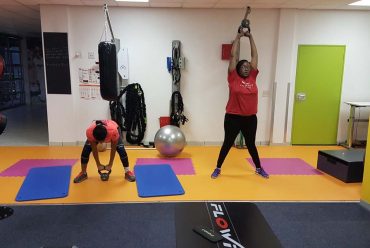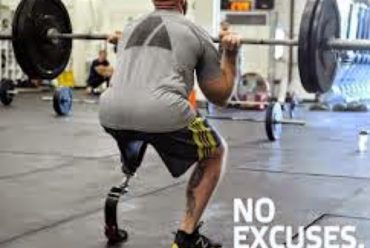5 Minutes with Craig Vardi, Sports-Certified Dietitian.
Why a Sport-certified Dietitian?
A Sport-certified Dietitian is a Dietitian who has an interest and passion for nutrition in different sports. Generally, this type of Dietitian has played a lot of sport or even competed at a high level, and understands the rigours of sport, as well as the mind-set of what is required to compete at a high level. Additional qualifications are undertaken to consolidate knowledge and skills.
What role do you play as a Dietician?
Nutrition is an important aspect of participating and competing in different sports. A Dietitian helps sportsmen/women individualise their diets, so that as optimum-as-possible dietary intake takes place as much of the time as possible. Many aspects of nutrition can be focused on e.g. weight-optimisation, energy delivery, muscle development, optimum recovery from workouts, promotion of physiological adaptations, supplementation, and health (!) to name but a few. A Dietitian converts theoretical research findings into practical eating habits to achieve the aforementioned aspects.
What are the latest trends/concepts in your field?
In the last 5-10 years there has been a massive amount of nutritional research that has taken place in many different areas of dietary intake. Nutritional intake in sport has been one such area. Nutrition has become much more of a science, grounded in proven concepts as opposed to previous guesswork. That said, there is still lots of research in different areas needed, but things are evolving all the time. One exciting area that has emerged which is slowly being understood on a cellular level, is the area of promoting physiological adaptations through dietary manipulation. In the past people would depend on their training to get fitter, stronger and have more endurance. Now, diet has become an important aspect that people can use to get their bodies up to the level they can genetically achieve. So how you eat, in other words what, how much and when, will either help you reach top performance, or if neglected will be regarded as a weak link and not help you to a large degree.
What advice would you give young athletes regarding nutrition?
Adolescence is an extremely important developmental stage of life, where one’s body is growing and maturing. One good example that illustrates this is that 50% of the bone mass one eventually has as an adult, is acquired during adolescence. Hence, without near-optimum dietary intake during adolescence, health status during adulthood can be compromised. Coupled to the additional needs of growth, sport makes further demands on a young athlete’s body that requires his/her diet to be further adjusted to deliver sufficient energy, protein and all the other nutrients required to promote performance. A third area which usually impacts on an adolescent’s dietary intake to some degree, are the preferences and aversions to different foods on offer. Eliminating foods or even food groups (e.g. vegetarianism) can make it tricky for a young athlete to take in all the nutrients he/she requires. In summary, the path of a young athlete in terms of nutrition can be a tricky one, with additional requirements placed on him/her, and therefore I would have no hesitation to say that if one isn’t fairly sure that one’s diet is adequate, seeing a dietitian would be an important step forward.
Who is Craig Vardi outside of the practice?
As focused on nutrition as a Dietitian can be at times, Craig Vardi also attempts to find balance in his life. Family time, food and fun play an important role in his life. Eating something “bad” like a pizza while drinking a cold beer certainly does take place, but this emphasises that life is meant to be enjoyed too! Craig thoroughly enjoys getting onto his softail mountain bike and doing a nice long cycle, negotiating the terrain as best as he can do, be it on the spruit or at Modderfontein on occasion. Seeing friends, watching movies/series and generally trying to appreciate all the blessings of life make his life interesting.









